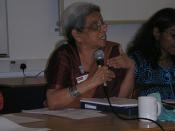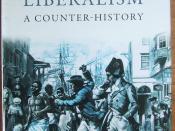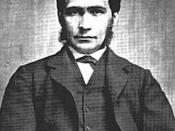Historians have defined the nature of liberalism in a variety of ways. Some feel liberalism is a cultural attitude; others believe it is the ideology of the rising bourgeoisie, many explaining it as opposition to excessive state power and a coherent body of principles based upon the idea of individual freedom. However, the concept of Social liberalism locates middle ground between uninhibited classical liberalism and more extreme ideologies. More a fusion of individual rights and active government, it consists of two main parts. Firstly, the social-welfare component prescribes significant social and economic functions to alleviate the effects of capitalism. The philosophy's second major component, liberalism, reaffirms classical liberalism's central values. Nevertheless, social liberalists argue that such values are not best interpreted through the tenets of laissez-faire, but rather are beneficial to the greater part of society if translated in a different tongue: that of positive liberty. In many respects one could argue that the nature of classical liberalism or "negative" liberty is less effective than its "positive" counterpart: social-liberalism, and hence the latter is justified in amending certain elements of the classical-liberal tradition, specifically high restriction on state intervention in matters of economic and individual subsistence.
It is first very important to understand the fundamental distinction between the two different kinds of liberty and consequently the origins of such. In 1690 John Locke wrote the essay, Two Treatises of Government, where he redefined the relationship between government and the people, proclaiming that the state was founded and erected in order to "preserve the natural rights of it's citizens," and that if it failed to do so, the people had the responsibility to rebel improve their conditions. In the pre-industrial days of Europe and America, the poor had a relationship with the upper class that was characterised by deference towards...


